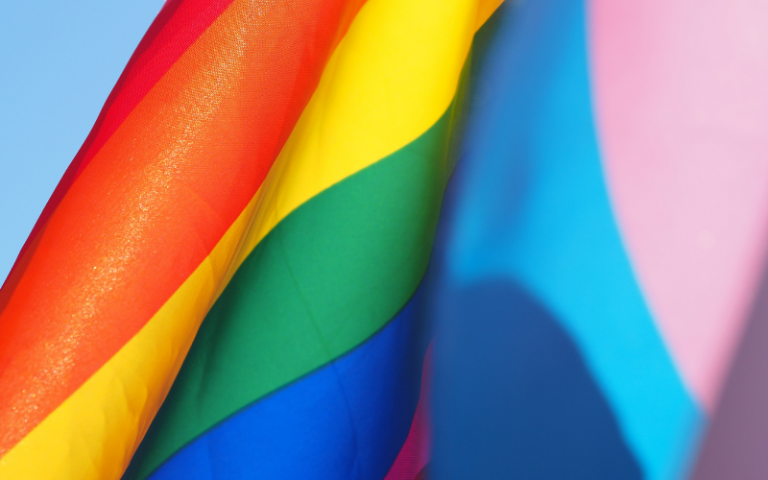Transgender Day of Visibility 2022 – being transgender at UCL
31 March 2022
To mark Transgender Day of Visibility 2022, UCL student Allan writes about his experience of being a trans student at UCL. Read on to learn about his experiences, suggestions for trans allies and resources to explore.

In December 2021, UCL officially withdrew from Stonewall’s Diversity Champions Programme. The decision was one that came as a shock to the trans community of UCL, and garnered much response from the student body. Spurred by this announcement, the Student Union strongly reiterated their support for the trans community. Furthermore, UCL’s senior leadership team has also voiced their commitment to diversity and inclusion, and has set up the LGBTQ+ Equality Implementation Group to ensure the continued representation of all students at this university.
The importance of creating safe spaces for student to express, experiment with, and embrace their gender identities cannot be overstated. Coming from a generally conservative hometown, it was a privilege to finally be able to live authentically as myself, and not for a second fear judgement from either students or staff. However, I’m starkly aware of the fact that this privilege is not universal.
Despite the welcoming community here at UCL, many students do not come out for a number of reasons. Some students, for example, cannot update their name on official records, may not even be able to graduate with the name they identify with, because they are not ready for their family or friends to find out about their transition. Other individuals may choose to be stealth (meaning they do not disclose their history of gender expression or choose to cut ties with those who knew who they were before they transitioned, so that those in their current surroundings do not necessarily know they are a trans individual). For whatever reason it may be, all trans, non-binary and gender non-conforming individuals deserve to be treated with as much respect and dignity as their cis-gendered peers.
Transgender Day of Visibility is not only a day to celebrate the history and resilience of the trans community, but also a reminder of the struggles this community faces, as invisible or unthought-of as these struggles may be to cis-gendered people. For instance, it’s hard for people to understand the immense anxiety I go through just to go to gendered bathrooms in public, unless they have the same lived experiences. Walking in, I always fear that I don’t present masculine enough, that I will be chased out by people who might accuse me of ‘cross-dressing’ (a term, of course, with its own complex implications in the history of gender, and a term which has all too often been weaponised against trans people).
The fight for inclusive spaces is far from over; even at progressive institutions such as UCL itself, there is always more that can be done. For instance, having at least one gender-neutral restroom in each building would greatly increase accessibility for trans people. For now, though, UCL does have a map for students to be able to locate nearby gender-neutral bathrooms.
Of course, not every step of progress needs to be as grand as changing campus infrastructure. The biggest changes start small. One thing that everyone can (and should!) do is to include their preferred pronouns when introducing themselves — this means, for example, that I would say, ‘Hi, my name is Allan, I go by he/him pronouns’. In the past, people often assumed that someone was trans as soon as they stated their pronoun preferences, because it was not a widespread practice. Now, however, with the increasing normalisation of introducing yourself with your pronoun preferences in classroom settings, trans and non-binary folks, as well as gender non-conforming individuals, can affirm their gender expression without people making implicit judgements about their identity. If you are unsure of someone’s pronoun preferences, it is often good practice to ask them for their pronouns, or use the gender-neutral pronouns ‘they/them’ if you are unable to find out.
The journey of discovering and becoming comfortable with one’s own gender identity is often complex and nonlinear. Someone may choose to transition socially but not medically (which is to say they might choose to go by a different name and gender presentation, but choose not to undergo gender-affirming medical procedures). Others might discover that their gender identity is fluid. Some may transition multiple times; others may detransition. There is no one-size-fits-all explanation to each person’s experience of their own gender, and gender itself is merely one aspect to the complex nexus of identity. It is precisely this infinite variety of expression that we should celebrate on the Trans Day of Visibility, and on the 364 other days of the calendar — our unique identities make us beautiful, and our compassion for each other in this vibrant community makes us strong.
Further resources
- Take the Student Union’s Active Bystander training course to learn how to safely intervene inappropriate behaviour.
- Join the Trans Students’ Network and/or the LGBT+ Students’ Network.
Allan Yeung, 3rd year BA English student
 Close
Close

